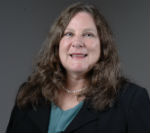About Conference
You're cordially invited to join us at the "35th International Conference on Cardiology and Healthcare " set to take place on November 19-20, 2025 in the beautiful city of Tokyo, Japan. This year's theme is " Prevention and Early Intervention in Cardiovascular Health" promising a comprehensive exploration of all facts of Cardiology, Coronary Arteries and Heart Rate. Engage with esteemed speakers from across the globe, share experiences, and keep abreast of the latest breakthroughs in the field. Whether you're a researcher, practitioner, or enthusiast, your contribution to this collaborative platform is invaluable. Cardiology Care 2025 serves as a nexus for leading experts to delve into cutting-edge research, fostering collaboration with international business delegates and scholars. Don't miss this opportunity to deepen your understanding of the causes and management of these pivotal health concerns. Join us and be part of the journey towards advancement and innovation in Cardiology, Coronary Arteries and Heart Rate.
This event will encompass fresh research prospects, focusing on various topics, including Cardiovascular System, Heart, Blood Vessels, Cardiac Cycle, Cardiac Anatomy, Myocardium, Blood Pressure, as well as Hypertension, among other areas within the expansive realm of research.
Young Researchers Forum
The Cardiology Care 2025 conference is offering Young Researcher Awards for outstanding Master's, Ph.D, and Post-Doctorate thesis presentations. Only 25 presentations will be accepted for the Young Research Forum at The Cardiology Care 2025.
Cardiology Care conferences are held in various locations worldwide each year to support the extensive research efforts in the field of Cardiology and Cardiac Anatomy Management. Most cardiac conferences aim to bring together researchers from different parts of the world to share their knowledge and jointly develop new solutions for conducting proficient and productive research. Thyroid remains a major problem to our society, with millions of new cases recorded each year.
Sessions & Tracks
The field of interventional cardiology is growing widely. This growth is the result of improvements in existing technology, development of new technology, and expansion of criteria for the selection of patients. Percutaneous transluminal coronary angioplasty (PTCA) remains the mainstay and is used to treat an increasing number of patients with coronary artery disease that manifests as stable or unstable angina or acute myocardial infarction. Atherectomy is being used to “debulk” lesions and remove atheromatous plaque as well as to remove intimal flaps after PTCA.
-
Personalized Medicine
-
Pharmacological Enhancements
-
Future Directions and Research
Takotsubo cardiomyopathy is a temporary heart condition that develops in response to an intense emotional or physical experience. It’s also known as stress cardiomyopathy or broken heart syndrome. In this condition, the heart’s main pumping chamber changes shape, affecting the heart’s ability to pump blood effectively. It can occur at any age in both men and women, but it mostly affects older women. The main symptoms are sudden chest pain, shortness of breath or fainting - usually after feeling severe stress. This condition is temporary and most people recover within two months.
-
Risk Factors and Triggers
-
Prognosis and Outcomes
-
Differential Diagnosis:
HHT is a genetic condition that causes enlargements and tangles of veins and arteries (telangiectasias) and other malformations of the blood vessels. These can occur in the brain, lungs, digestive system, skin or other organs. HHT is somewhat rare, affecting approximately 1 in 5,000 people. It does not occur more frequently among people of any gender or racial or ethnic background. The main symptoms of hereditary hemorrhagic telangiectasia involve blood vessel malformations that can cause bleeding. Telangiectasias and other AVMs in people with HHT can form from birth until adulthood, and may occur in several organs of the body.
-
Patient Support and Education
-
Care Coordination
-
Advocacy Efforts
People living with or at risk of inherited heart and blood vessel disorders are helped at the Cardiovascular Genomics Program. It offers comprehensive cardiovascular evaluation and genetic counseling and testing. The Cardiovascular Genomics Program offers several services, including Marfan Syndrome and thoracic Aorta clinic, Long QT Syndrome and Genetic Heart Disorders Clinic, Hypertrophic Cardiomyopathy clinic and Familial Hypercholesterolemia Clinic.
-
Genetic Risk Scores
-
Epigenetics
-
Clinical Trials
Artificial intelligence is a computer science field that studies the problem of building agents which take the best possible course of action in a specific situation. Cardiology is at the forefront of artificial intelligence revolution in medicine. AI allows accurate prediction of cardiovascular outcomes, non-invasive diagnosis of coronary artery disease, detection of malignant arrhythmias and diagnosis, treatment, and prediction of outcomes for heart failure patients.
-
Heart Sound Analysis
-
Drug Development
-
Patient Acceptance
Biomarkers are a powerful tool for identifying high-risk people, promptly and reliably diagnosing illness conditions, and effectively diagnosing and treating patients. Cardiac biomarkers are bio-molecular components obtained through venal punctures and secreted in the blood during an injured or strained heart [4]. Heart biomarker tests may assist in evaluating a person's risk of cardiac illnesses and monitoring and treating someone suspected of having an Acute Coronary Syndrome (ACS) and cardiac ischemia. Biomarkers can be used for a variety of clinical applications, such as predicting heart disease risk, diagnosing disease, or predicting outcomes.
-
Metabolomic Biomarkers
-
Natriuretic Peptides
-
Inflammatory Biomarkers
The Cardiovascular and Clinical Epidemiology track aims to develop creative and independent investigators who will be able to collaborate effectively with bench and applied scientists to improve disease prevention and treatment at both the clinical and population levels. Students engage in coursework and research applicable to the entire continuum of cardiovascular and clinical epidemiology – prevention and screening, diagnosis, treatment, disease management, and prognostication. The track includes two groups of students – those with a focus on cardiovascular disease epidemiology and those with a focus on clinical epidemiology.
-
Age and Gender Differences
-
Emerging Risk Factors
-
Health Disparities
Heart disease may be considered by some to be more of a problem for men. However, it's the most common cause of death for both women and men in the United States. Because some heart disease symptoms in women can differ from those in men, women may not know what to look for. Women are more likely than men to have heart attack symptoms unrelated to chest pain, such as Neck, jaw, shoulder, upper back or upper belly (abdomen) discomfort, Shortness of breath. Pain in one or both arms, Nausea or vomiting, Sweating, Light headedness or dizziness and Heartburn (indigestion).
-
Impact of Hormones
-
Diagnostic Challenges
-
Myocardial Infarction
Cardiac tumors (also called heart tumors) are growths that form in your heart. They can be either benign (noncancerous) or malignant (cancerous). Some are harmless or easily treatable, but others can be fatal. Symptoms of cardiac tumors include chest discomfort, Dizziness and fainting, Fatigue and Joint pains.
Peripartum cardiomyopathy (PPCM), also known as postpartum cardiomyopathy, is an uncommon form of heart failure that happens towards the end of pregnancy or in the months following delivery, when no other cause of heart failure can be found. Symptoms are Shortness of breath or breathlessness with light activity and when lying flat,Fatigue, Fluid retention which causes swollen ankles or feet, cough, chest congestion and increased urination at night.
-
Surgical Interventions
-
Recurrence
-
Uncommon Tumors
Robotic cardiac surgery is heart surgery done through very small cuts in the chest. With the use of tiny instruments and robot-controlled tools, surgeons are able to do heart surgery in a way that is much less invasive than open-heart surgery. It may also be used to Repair or replace stiff or leaky heart valves and removes tumor in the heart. One of the main benefits of robotic cardiac surgery is that it has fewer risks than open-heart surgery. Risks involved are Heart attack, Stroke, Infection and Death.
-
Robotic-Assisted Techniques
-
Patient Criteria
-
Cost Analysis
Cardiovascular pharmacology focuses on the fundamental mechanisms of cardiovascular cells and how drugs influence the heart and vascular system. Researchers in the department exploit novel technologies such as induced pluripotent stem cells, automated electrophysiology and genomics to investigate the causes of sudden cardiac death, congenital arrhythmias and cardiac toxicity of chemotherapeutic drugs.
-
Beta-Blockers
-
Thrombolytics
-
Pregnancy and Lactation
Cardiac regeneration is a broad effort that aims to repair irreversibly damaged heart tissue with cutting-edge science, including stem cell and cell-free therapy. Stem cell therapy for the treatment of brain injury would allow clinicians to shift the focus from neuroprotection to neurorestoration, with the potential to restore function to people with brain injury. The side effects of Stem cell therapies are Injecting even a person’s own tissue in a different body part has resulted in severe illness and, in some cases, blindness. Therapies offered by stem cell clinics come with financial risk as well. Because these procedures are generally not covered by insurance.
-
Cell Delivery Methods
-
Scaffold Materials
-
Cell Replacement Therapy
Precision medicine represents a new strategy in the approach to care by targeting prevention and treatment while considering individual differences in genetics, exposures, and lifestyle and health factors that are determinants of a person’s disease phenotype Precision Medicine in Cardiovascular Disease include Genetic basis of inherited cardiovascular disease, Modes of genetic inheritance, Types of genetic variations, Approach of cardiac genetic testing and Analysis and interpretation of genetic data.
-
Customized Drug Regimens
-
Systems Biology
-
Patient Consent and Autonomy
Telehealth allows healthcare providers to evaluate, diagnose, inform and treat patients without an in-person visit. Patients can communicate with physicians from their homes using their own personal technology or by visiting a dedicated telehealth kiosk. The types of Telemedicine include Interactive, Remote patient monitoring, Store and forward and Mobile. The major advantages of this are Convenience, Increased access and Reduced exposure.
-
Remote Patient Monitoring
-
Mobile Health (mHealth) Apps
-
Emergency Protocols
COVID-19 is associated with many cardiac complications. Cardiac injury is recognized as one of the most frequent complications of the disease. Long-term cardiac complications following COVID-19 include ischemic heart disease, heart failure, arrhythmias, and myocarditis. Research shows COVID-19 infection can increase the risk for heart-related problems such as myocarditis, a rare inflammation of the heart, and an irregular heartbeat known as atrial fibrillation.
-
Acute Heart Failure
-
COVID-19 and Arrhythmias
-
Arterial Thrombosis
Cardiovascular aging is a complex process of adaptive structural and functional changes over time. With advancing age, the arterial tree thickens and decreases in compliance, resulting in increased pulse wave velocity, systolic blood pressure, and left ventricular afterload. Causes of heart aging increases someone smoke, eat poorly, don't exercise enough, or have high blood pressure, high cholesterol, diabetes or obesity. Approximately 75% of all heart attacks and strokes link back to these risk factors.
-
Sedentary Lifestyle
-
Gender Differences in Cardiovascular Aging
-
Chronic Kidney Disease
Market Analysis
Cardiology Care 2025 is the study of heart. Cardiology is a branch of medicine that deals with disorders of the heart and the cardiovascular system. The field includes medical diagnosis and treatment of congenital heart defects, coronary artery disease, heart failure, valvular heart disease, and electrophysiology. The most important behavioural risk factors of heart disease and stroke are unhealthy diet, physical inactivity, tobacco use and harmful use of alcohol. Amongst environmental risk factors, air pollution is an important factor. The effects of behavioural risk factors may show up in individuals as raised blood pressure, raised blood glucose, raised blood lipids, and overweight and obesity. These “intermediate risks factors” can be measured in primary care facilities and indicate an increased risk of heart attack, stroke, heart failure and other complications.

The increasing prevalence of cardiovascular diseases and technological advancements have significantly improved the design and functionality of the interventional cardiology market and have carved the way for market growth. In addition, the rising healthcare expenditure and the increasing geriatric population contribute to the market growth. Data Bridge Market Research analyzes that the global interventional cardiology market, which was USD 14.61 billion in 2022, would rocket up to USD 23.61 billion by 2030, and is expected to undergo a CAGR of 7.1% during the forecast period. This indicates that the conventional device segment dominates the device type segment of the market owing to the advancements in technology that have led to the development of advancements in interventional cardiology for various use.

Past Conference Report
CARDIOLOGY CARE 2024
Past Reports Gallery












